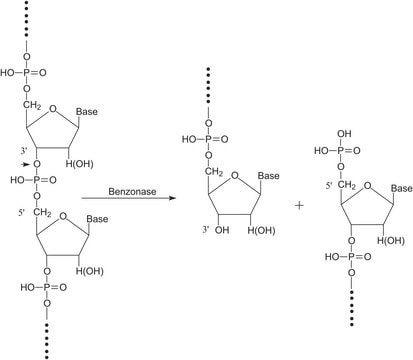S2647
Spectinomycin dihydrochloride pentahydrate
powder, γ-irradiated
About This Item
Recommended Products
biological source
synthetic (inorganic)
Quality Level
grade
for molecular biology
sterility
γ-irradiated
form
powder
potency
≥500 μg per mg
storage condition
(Keep container tightly closed in a dry and well-ventilated place. Keep in a dry place.)
color
white to off-white
solubility
H2O: soluble at
antibiotic activity spectrum
Gram-negative bacteria
Gram-positive bacteria
Mode of action
protein synthesis | interferes
storage temp.
2-8°C
suitability
nonselective for Escherichia coli
nonselective for coliforms
SMILES string
O.O.O.O.O.Cl.Cl.CN[C@@H]1[C@H](O)[C@H](NC)[C@H]2O[C@]3(O)[C@@H](O[C@H](C)CC3=O)O[C@@H]2[C@H]1O
InChI
1S/C14H24N2O7.2ClH.5H2O/c1-5-4-6(17)14(20)13(21-5)22-12-10(19)7(15-2)9(18)8(16-3)11(12)23-14;;;;;;;/h5,7-13,15-16,18-20H,4H2,1-3H3;2*1H;5*1H2/t5-,7-,8+,9+,10+,11-,12-,13+,14+;;;;;;;/m1......./s1
InChI key
DCHJOVNPPSBWHK-UXXUFHFZSA-N
Looking for similar products? Visit Product Comparison Guide
General description
Application
Biochem/physiol Actions
Mode of Resistance: A mutation in rpsE, the gene for ribosomal protein S5, prevents the binding of spectinomycin. Resistance is also conferred by the aminoglycoside-3′-adenyltransferase gene (aadA).
Antimicrobial spectrum: Spectinomycin acts against gram-negative and gram-positive bacteria.
Packaging
Caution
Preparation Note
Other Notes
related product
Signal Word
Warning
Hazard Statements
Precautionary Statements
Hazard Classifications
Eye Irrit. 2 - Skin Irrit. 2 - STOT SE 3
Target Organs
Respiratory system
Storage Class Code
11 - Combustible Solids
WGK
WGK 2
Flash Point(F)
Not applicable
Flash Point(C)
Not applicable
Personal Protective Equipment
Choose from one of the most recent versions:
Already Own This Product?
Find documentation for the products that you have recently purchased in the Document Library.
Customers Also Viewed
Protocols
Extraction and quantitative analysis of aminoglycosides in porcine tissue, using molecular imprinted polymer solid phase extraction followed by LC-MS/MS.
Our team of scientists has experience in all areas of research including Life Science, Material Science, Chemical Synthesis, Chromatography, Analytical and many others.
Contact Technical Service









